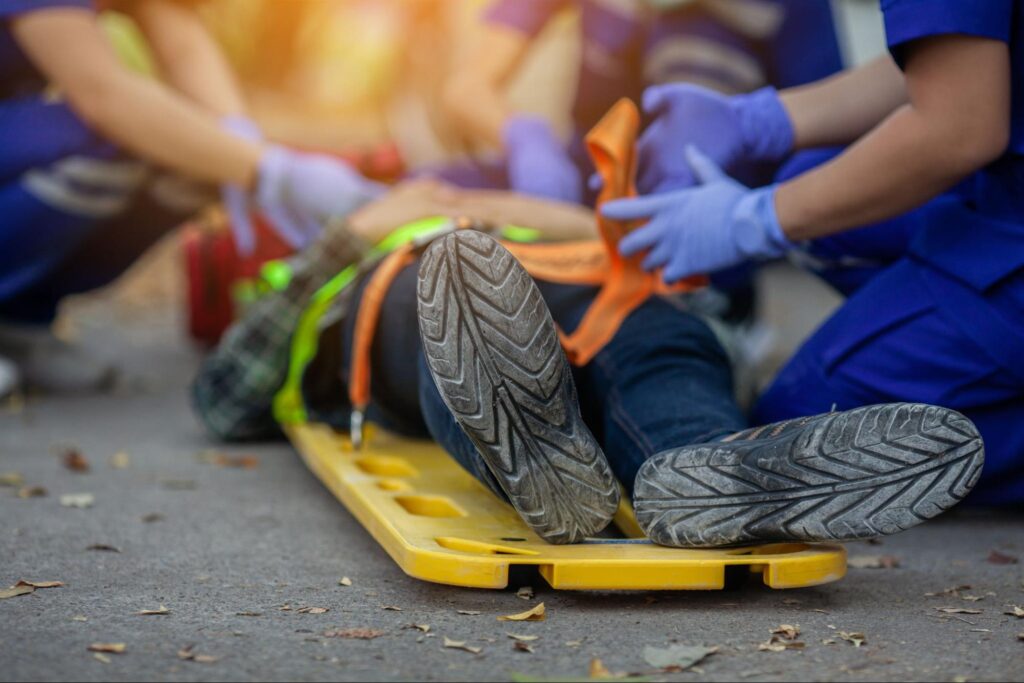The Life-Changing Impact of Catastrophic Injuries

Few events are as life-altering as a catastrophic injury. These are not just serious accidents that result in temporary setbacks — they are injuries that permanently change the course of a person’s life. Victims often find themselves facing physical disabilities, emotional struggles, and a future that looks very different from what they had once envisioned. In addition to the immediate shock and pain, the reality of long-term care, financial hardship, and lifestyle adjustments can feel overwhelming.
The ripple effects of catastrophic injuries extend far beyond the victim. Families often take on caregiving roles, friends adapt to new ways of supporting their loved one, and entire household dynamics shift under the weight of these challenges. Because the consequences are so profound, the law treats these injuries with special seriousness. With the help of a skilled Atlanta personal injury attorney, victims and their families can pursue the financial security and legal recognition they need to rebuild their lives.
Defining Catastrophic Injuries
A catastrophic injury is generally defined as an injury that leaves a person with long-term or permanent impairments that fundamentally alter daily living. These may include spinal cord injuries that result in paralysis, traumatic brain injuries that affect memory and cognition, severe burns that cause lasting disfigurement, or amputations that limit independence. Unlike less severe injuries, these conditions rarely allow victims to return to their prior quality of life.
The legal system acknowledges this distinction by categorizing catastrophic injuries separately from other personal injury claims. Courts consider not only the medical severity but also the long-term consequences, such as the inability to work, lifelong medical needs, and permanent loss of independence. This legal classification helps ensure that victims are not treated the same as those who may eventually make a full recovery.
The Physical and Emotional Toll
Catastrophic injuries impact a victim’s life in many ways, creating burdens beyond the initial trauma. Physical effects are visible, but emotional and psychological consequences are significant as well. Both victims and their families face challenges that courts consider when deciding compensation.
- Physical challenges – Surgeries, hospital stays, and long-term medical interventions are often necessary to address severe injuries.
- Loss of mobility and independence – Victims may struggle with daily tasks, requiring assistance or adaptive equipment.
- Chronic pain – Lingering discomfort and physical limitations can impact quality of life.
- Emotional distress – Feelings of anger, grief, anxiety, or hopelessness often arise as victims adjust to a changed lifestyle.
- Psychological effects – Depression, post-traumatic stress, or a loss of identity may develop over time.
- Impact on family members – Loved ones often experience “secondary trauma,” as they witness the victim’s suffering.
- Caregiver strain – Providing constant support can lead to stress, exhaustion, and strained personal relationships.
- Court recognition – Legal systems increasingly consider both physical and emotional hardships when determining fair compensation.
The Financial Burden of Long-Term Care
The financial consequences of catastrophic injuries are staggering. Victims frequently require lifelong medical treatments, rehabilitation, and costly assistive devices like wheelchairs, prosthetics, or home modifications. Unlike short-term injuries that heal within weeks or months, catastrophic injuries demand resources that stretch across decades.
Lost earning capacity adds another crushing burden. Many victims cannot return to their previous line of work — or any work at all — creating a permanent gap in household income. Families often find themselves balancing rising medical bills against reduced financial stability. Courts weigh these realities heavily, often awarding significant compensation to reflect the economic losses stretching into the future.
Impact on Family and Relationships
Catastrophic injuries are rarely an individual experience — they transform family life as well. A spouse may become a full-time caregiver, shifting from partner to nurse, which can alter the emotional intimacy of the relationship. Children may face emotional challenges when they see their parents’ limitations, and siblings may take on more responsibilities within the household.
The strain of these role changes can lead to marital tension, emotional distance, and in some cases, the breakdown of family bonds. However, with proper legal support and compensation, families can access counseling, respite care, and support services that ease these burdens and help preserve relationships under difficult circumstances.
Rehabilitation and Recovery Challenges
Recovery from a catastrophic injury is not a simple or linear process. Victims often face years of physical therapy, occupational training, and psychological counseling. Even with the best care, progress can be slow, and setbacks are common. This prolonged journey can be mentally exhausting, requiring resilience from both the victim and their support system.
Rehabilitation also demands specialized medical teams, advanced technologies, and consistent financial resources. Without adequate compensation, many families struggle to access the full spectrum of care needed for recovery. Courts factor in these long-term challenges when determining damages, recognizing that recovery is not a one-time event but a lifelong process.
The Legal Considerations of Catastrophic Injury Claims
Unlike standard personal injury claims, catastrophic injury cases require a broader scope of evidence. Plaintiffs must not only prove negligence but also establish the lifelong impact of the injury. This often involves medical experts, financial planners, and vocational specialists who testify about the victim’s needs and the economic consequences of their limitations.
These cases are complex, often involving insurance companies determined to minimize payouts. A strong legal strategy ensures that the full scope of damages — including physical, emotional, and financial losses — is presented clearly. The stakes are high, and courts tend to award substantial damages when evidence shows the injury has permanently reshaped the victim’s life.
Compensation Beyond Medical Bills
Medical bills represent only part of the true cost of catastrophic injuries. Courts often award damages for pain and suffering, emotional distress, loss of enjoyment of life, and diminished earning potential. These non-economic damages are especially important, as they address the intangible but deeply felt losses that victims endure.
In certain cases, punitive damages may also come into play. These are awarded when the defendant’s actions were not only negligent but reckless or intentional. Such awards serve both to compensate the victim and to deter others from similar conduct, reflecting the seriousness with which courts view catastrophic injury cases.
Seeking Legal Guidance for the Future
For people with catastrophic injuries, legal action is about more than money; it’s about securing their future. An experienced attorney can help victims and their families plan for long-term costs, find the right specialists, and seek justice from those responsible.
With a skilled lawyer, families can shift their focus from financial stress to healing. Legal support provides peace of mind, knowing their future is more secure, and helps families rebuild their lives confidently despite challenges.



